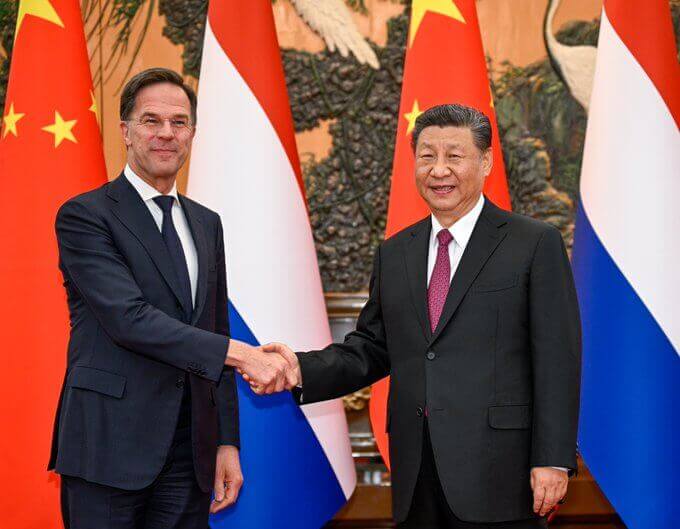Earlier this year, the Dutch government had initiated restrictions on Dutch firm ASML’s export of advanced “DUV” tool lines to China, aligning with the US stance to limit chip exports to the country.
As part of dispelling misunderstandings that may have accompanied this move, Dutch PM Mark Rutte met with Chinese President Xi Jinping in Beijing on Wednesday, aiming to address tensions over export restrictions imposed on ASML.
An ongoing concern is whether, under these export restrictions, the Netherlands will permit ASML to continue servicing equipment previously sold to Chinese clients.
President Xi Jinping met with Prime Minister of the Netherlands Mark Rutte @MinPres who is in China for a working visit.
— Hua Chunying 华春莹 (@SpokespersonCHN) March 27, 2024
Economic globalization may have met some headwinds, but the trend of history will not change. Decoupling has no future, and openness and cooperation is the… pic.twitter.com/mgzErFGX0x
Diplomatic Balancing Act
Rutte emphasised that any export measures affecting the semiconductor sector, including ASML, are not targeted at any specific country.
For his part, Chinese President Xi Jinping urged against “decoupling and breaking links” with China, emphasising China’s right to technological development. China views the Netherlands as a crucial trade partner, Xi added.
If the Netherlands is perceived as an unreliable partner, Chinese chip makers may explore alternatives to ASML, such as domestic firm SMEE, or Japanese competitors like Nikon and Canon.
Lithography Machines
Chinese Commerce Minister Wang Wentao expressed hope for the Netherlands to support companies in fulfilling contractual obligations and ensuring normal trade of lithography machines. Wang emphasised China’s trust in the Netherlands as an economic and trade partner.
During the visit, discussions between Dutch Trade Minister Geoffrey van Leeuwen and Wang were focused on semiconductor industry cooperation and trade issues.

